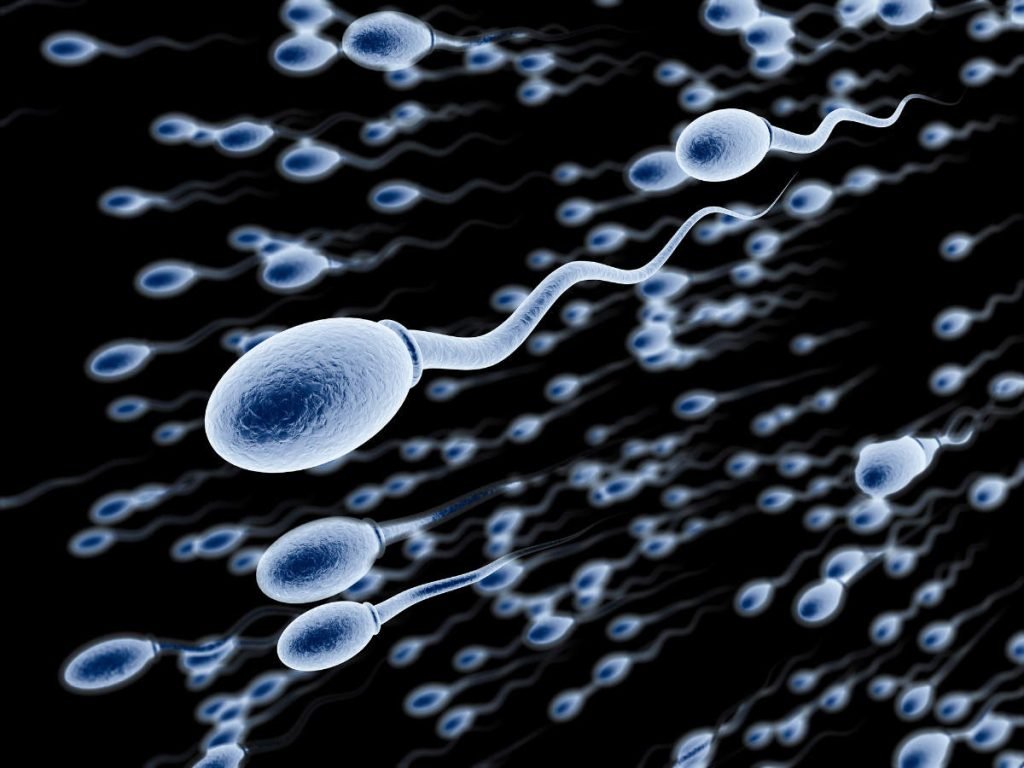Oligospermia Treatment In Jabalpur
Home Oligospermia Treatment In Jabalpur

Oligospermia Treatment
What Is Oligospermia:
A low sperm count in male is also called oligospermia. Low sperm count means that the semen during ejaculation contains fewer sperm than normal. The normal sperm count is considered as15 million sperm per ml of semen. If the sperm count is lower than normal then it is called Oligospermia.
The production of sperm is a complex process. To produce sperm requires normal functioning of the testes as well as the hypothalamus and pituitary glands and organs in your brain that produce hormones. These hormones trigger sperm production.
Once sperm are produced in the testes, tubes transport them to mix with semen and are ejaculated out of the penis. Problems with any of these systems or process can affect sperm production and may cause oligospermia in patients. Also, there can be problems of abnormal sperm shape called morphology of the sperm, movement means motility of the sperm
Symptoms Of Oligospermia
The main sign of low sperm count is the inability to conceive a child after one-year unprotected intercourse. There might be no other obvious signs or symptoms shows in men. In some men, some problem such as an inherited chromosomal abnormality, a hormonal imbalance, dilated testicular veins or a condition in which passage of sperm blocks that may cause signs and symptoms.
Low sperm count symptoms may include:
Problems with sexual function for example, low sex drive or difficulty maintaining an erection or simply erectile dysfunction
Pain and swelling or a lump in the testes area
Decreased facial and body hair or other signs of a chromosome or hormone abnormality
Medical Causes Of Oligospermia
Vericocele A varicocele is a condition in which swelling of the veins that drain the testicle. It is the most common cause of male infertility. The exact reason that varicoceles cause infertility is still unknown, it might be related to abnormal testicular temperature. Varicoceles result in reduced quality and concentration of the sperm.
Infection Some infections can relate with sperm production or healthy sperm or may blocks the passage of sperm. These include inflammation and some sexually transmitted infections. Some infections can result in permanent testicular damage, but in most cases sperm can still be retrieved.
Ejaculation problems. Some ejaculatory problems can be reversed by some medication, while others are permanent. In most cases of permanent ejaculation problems, sperm can retrieved directly from the testicles.
Tumor Cancers and non-malignant tumors can affect the male reproductive organs directly, through the glands that release hormones related to the reproduction, such as the pituitary gland. In case of cancer surgery, radiation or chemotherapy to treat tumors also can affect male fertility.
Hormone imbalances.The hypothalamus, pituitary and testicles are important to produce hormones to produce sperm. Imbalance in these hormones, as well as from other systems such as the thyroid and adrenal gland, may produce less sperm concentration.
Defects in tube that transport sperm. Many different tubes carry sperm. They can be blocked due to some reason, including injury, infections, trauma or abnormal development or inherited conditions. Blockage can cause at any level, within the testicle, in the tubes that drain the testicle, in the epididymis, in the vas deferens, near the ejaculatory ducts or in the urethra.
Chromosome defects.Inherited disorders such as Klinefelter’s syndrome in which a male is born with two X chromosomes and one Y chromosome instead of one X and one Y that causes abnormal development of the male reproductive organs.
Certain medications.Testosterone replacement therapy, long-term anabolic steroid use, cancer medications like chemotherapy or radiation, certain antifungal and antibiotic medications that can decrease male fertility and cause oligospermia
How Is Oligospermia Diagnosed?
Some tests can be done for the diagnosis of Oligospermia:
Semen analysis and sperm function tests for semen concentration, motility, and morphology of the sperm.
Sonography of reproductive organs, including transrectal and scrotal ultrasounds.
Some blood tests of the endocrine system to measure hormone levels and genetic disorders.
Treatments For Oligospermia
The treatment of low sperm count depends on the cause of oligospermia. You can increase your sperm count by stopping medicine or behaviors that cause low sperm levels.
Other causes may need other treatments:
You need surgery to treat a varicocele or blocked tube that carries sperm.
Prescribe some hormone supplements to regulate unbalance hormones.
Prescribe some antibiotics for infections.
Suggest counseling to deal with issues like erectile dysfunction or premature ejaculation.
There are cases when you won’t be able to increase your sperm count. If you’re trying to conceive, It suggests other ways to assisted reproductive technology (ART).
Treatment Options
Intrauterine insemination (IUI): If the oligospermia is in mild to moderate IUI treatment is effective. this is a fertility treatment where sperm is processed and placed directly into the uterus. This process can improve the pregnancy rate.
In vitro fertilization (IVF): IVF had the highest success rate and a high pregnancy rate with oligospermia. ICSI has a good outcome for those with azoospermia, severe oligospermia. IUI must be tried as a first-line treatment when semen concentration is more than 10 million sperm/ml.
